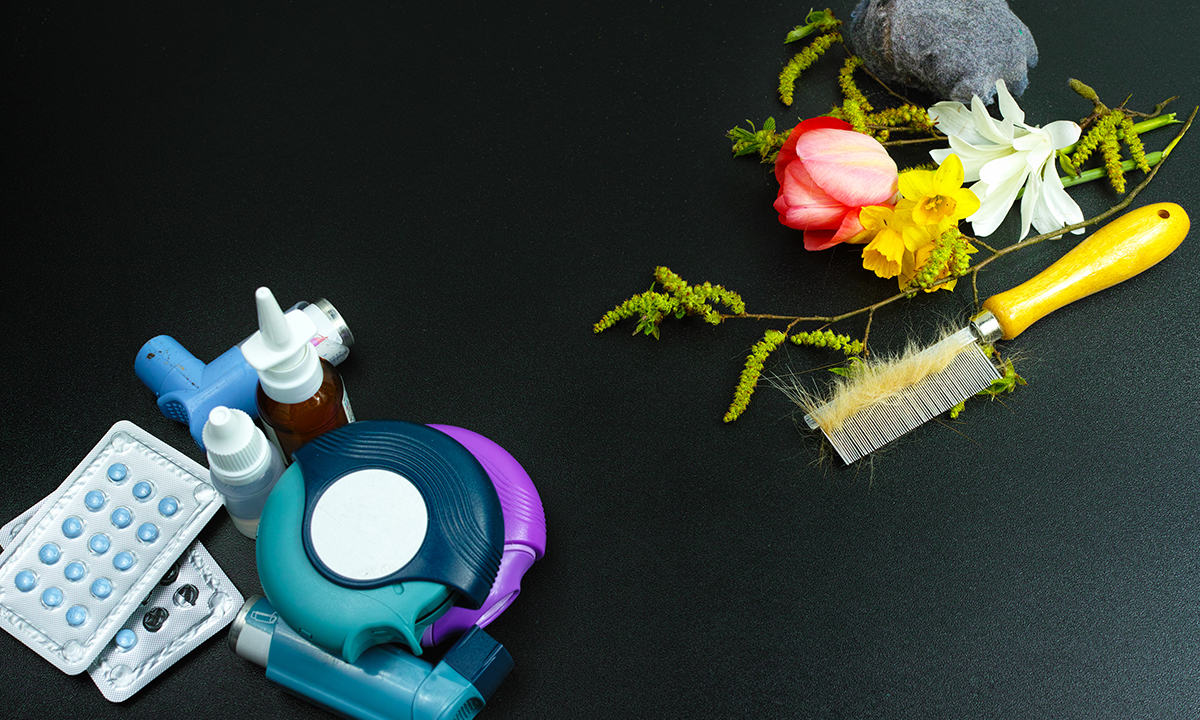ALLERGEN immunotherapy is an important approach for managing respiratory allergic disease, and specialists and GPs can work together to ensure patients get the most out of this personalised treatment, say experts.
Connie Katelaris, professor of immunology and allergy at Western Sydney University, told MJA InSight that “allergen immunotherapy provides a non-pharmaceutical modality for many people with respiratory allergies”.
She said that some people decide to go on immunotherapy early on, while other patients start it after being on other treatments. “Immunotherapy has a role in attenuating allergic responses.”
Professor Katelaris was commenting on a Perspective published today in the MJA which discussed the application of personalised immunotherapy to reverse allergic rhinitis and reduce allergic triggers of asthma exacerbation.
The authors wrote that treatment with allergen immunotherapy, in which allergic reactivity is
reduced by long term (3 years) regular repeated exposure to the relevant allergen, may be administered via injection as subcutaneous immunotherapy (SCIT), or by sublingual immunotherapy (SLIT) in the form of either liquid drops or tablets.
While allergen immunotherapy has remained fundamentally unchanged since it was first reported in 1911, it has been underpinned in recent years by an extensive evidence base with multiple clinical trials and meta-analyses.
Numerous trials have now established the efficacy of SLIT, although it has been difficult to determine its relative efficacy compared with SCIT due to the scarcity of direct comparative trials.
The authors wrote that detailed review of multiple trials has led to a conclusion of balance, whereby an apparent efficacy advantage of SCIT is counterbalanced by the safety and tolerability advantage of SLIT.
The authors said that the choice of whether to use SLIT or SCIT is a complex consideration, depending on the availability of optimal allergen products selected according to patient sensitisation, exposure and preference.
Co-author of the article and allergy specialist and immunologist at Royal Adelaide Hospital, Dr Frank Kette, told MJA InSight that there were several factors primary care physicians must have taken into consideration before starting a patient on immunotherapy.
“[They must have] taken a good allergy history and undertaken comprehensive allergy testing to determine patterns of allergen sensitisation, and those allergens to which the patient is not sensitised,” he said.
Dr Kette said GPs must have a sound knowledge of allergen profiles locally, nationally, and in some cases, other countries.
“For those undertaking SCIT, [they need] to comply with Australian Society of Clinical Immunology and Allergy guidelines, particularly with regards to management of adverse reactions and especially that of anaphylaxis.
“Otherwise, primary care physicians should refer patients to a specialist immunologist/allergist for assessment of whether or not immunotherapy is indicated, and importantly, which extracts to utilise.”
Dr William Smith, another co-author of the MJA article and a specialist immunologist and allergist at Allergy SA and Royal Adelaide Hospital, said that according to current guidelines, SCIT or SLIT may be initiated by an allergy specialist, whereas a GP with a special interest and further training in allergen immunotherapy could only initiate SLIT. “So for most GPs it will require a referral,” he told MJA InSight.
Professor Katelaris said that there was a need in Australia for well-trained allergy specialists.
“Most teaching hospitals have allergy specialists, and there are graduate courses available, like the course offered here at Western Sydney University.”
Dr Smith said it was true that access to allergy services was difficult in some places, “but it isn’t impossible and it doesn’t usually require an urgent consultation”.
Professor Katelaris said that once immunotherapy was initiated by a specialist, the GP had a key role in the ongoing management of allergen immunotherapy treatment.
“With injections, the GP would ensure the injection is being given correctly, that it is the right dose, and that there is the appropriate observation time after the injection. For SLIT, patients can do this at home, so the role of the GP is to assist in patient compliance,” she said.
Dr Kette said that compliance was crucial, and that close liaison in managing schedule alterations and adverse reactions provided optimal patient care.
“A structured program of follow-up is recommended to improve compliance.”
Dr Smith said that a unique problem with immunotherapy was that typically, products had been formulated for individuals according to pattern of allergen sensitisation, therefore the therapeutic product was non-uniform.
“Many of the companies producing allergen products are small operations, and have been unable to fund large-scale trials,” Dr Smith told MJA InSight.
He said this had changed in relation to SLIT, especially tablet-form SLIT, where products are now uniform in composition. The companies had been targeting a broader market, which had led to large-scale, high-quality trials with firm evidence of efficacy.
“The reason there hasn’t yet been a direct comparison between subcutaneous immunotherapy and sublingual immunotherapy is that it’s not in the commercial interest of companies to do so.”
Dr Frank Kette agreed, adding that “drug trials are expensive”.
“In the absence of a requirement for these SLIT trials to show ‘non-inferiority’ to SCIT, it is not in the company’s interest to compare efficacy between the two treatments.”
To find a doctor, or a job, to use GP Desktop and Doctors Health, book and track your CPD, and buy textbooks and guidelines, visit doctorportal.

 more_vert
more_vert
Are you commenting on the poll or on the unrelated article?
TGA should not regulate them at all. They are just vegetables. Further regulation would be expensive and pointless.
Neither should TGA endorse them. In my opinion they should not be sold by pharmacists, but they are free to do so if they have no regard for their scientific training.